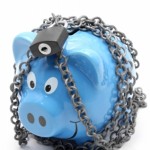Emergency Funds Are a Must Have: Read Why
 Surprisingly not many people realise how vital it is to have emergency funds available in case they face a fiscal emergency. Some people consider their credit cards to be their emergency fund, but they do not realise how much interest they will need to pay to use their credit card. Financial experts recommend that every household create an emergency fund to protect their financial future.
Surprisingly not many people realise how vital it is to have emergency funds available in case they face a fiscal emergency. Some people consider their credit cards to be their emergency fund, but they do not realise how much interest they will need to pay to use their credit card. Financial experts recommend that every household create an emergency fund to protect their financial future.
Below is a look at what an emergency fund is and why it is so important.
What is an Emergency Fund?
An emergency fund is just as the name implies. It’s a set of funds that is set aside for a rainy day when unexpected expenses pop up. It is designed to keep you from going into debt and alleviating financial pressures or stress. It’s simple to set up and should be a part of every household regardless of income.
Set Up Prior to Paying Off Debt
It may sound odd, but you should definitely set up an emergency fund simultaneously to any debt reduction plan. The reason is to prevent you from possibly going into further debt should something happen which requires more money. If you were to face a financial emergency before completing your debt reduction plan then you would have to borrow money again to cover the costs of the emergency. If, however, you already have an emergency fund set up, you can cover these emergency costs, replenish the emergency fund and continue on with your plan without incurring any additional debt.
How Much Should You Save
Most experts agree that you should have an amount of savings in your emergency fund to cover 3 -6 months of wages. However, if you still have debt to pay off, you will probably be fine with setting up a fund with $1,000 – $3000. This will cover most emergencies and allow you to still pay off your debt. Once you are living debt-free, you should increase your emergency fund to cover the before mentioned time frame. Try to establish this fund prior to making any big ticket purchases or investing.
Only Use for Emergencies
The most important aspect of maintaining an emergency fund is to make sure that you only use it for emergencies. An emergency does not constitute the purchase of a new television set or a special holiday. Only use this money for real emergencies, such as a major car or home repair or a major medical bill. Try to pay as much of these costs as possible out of your regular funds and only dip into your emergency fund when necessary. Also, you want to replenish this fund as quickly as possible after using the funds for an emergency. These will help you be prepared for the next emergency.
While you may not think an emergency fund is very important, you will be pleased that you have this money set aside if an emergency ever occurs. It will help you live a stress-free life and help you keep your household finances under control and prevent you from going into debt. A healthy emergency fund really provides a great peace of mind and confidence that a large portion of your personal finances is under control.
Image courtesy of Vichaya Kiatying-Angsulee / FreeDigitalPhotos.net




